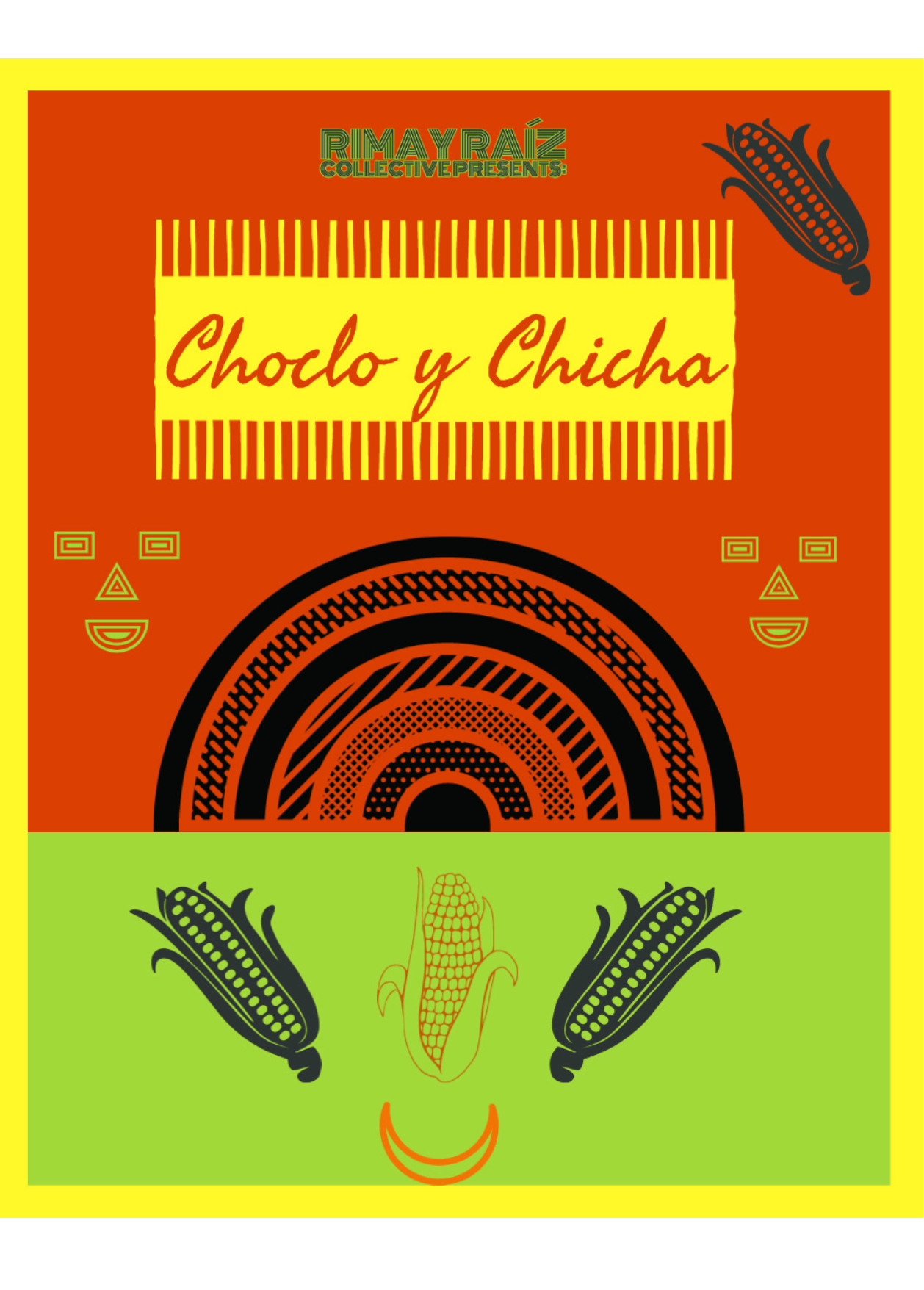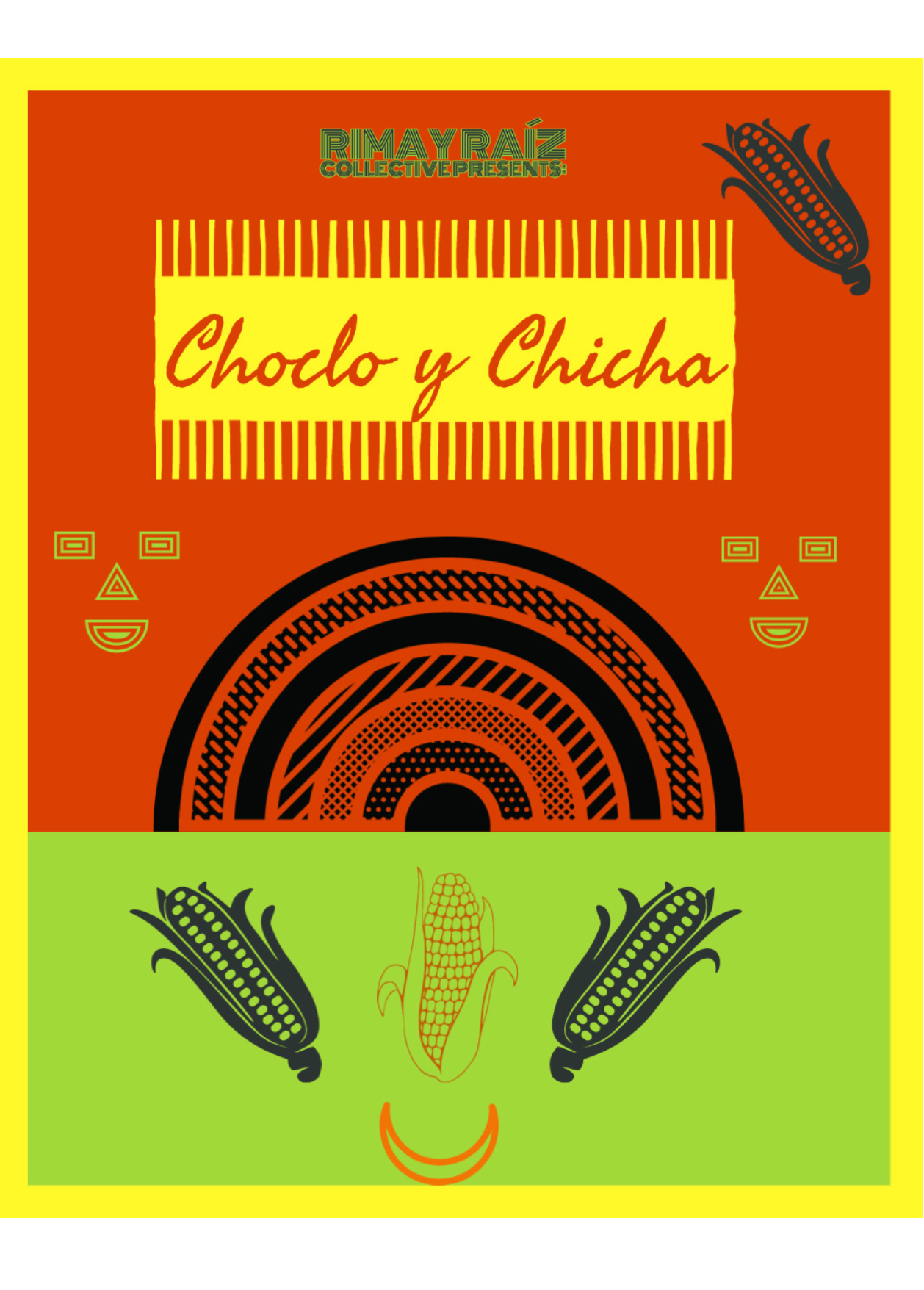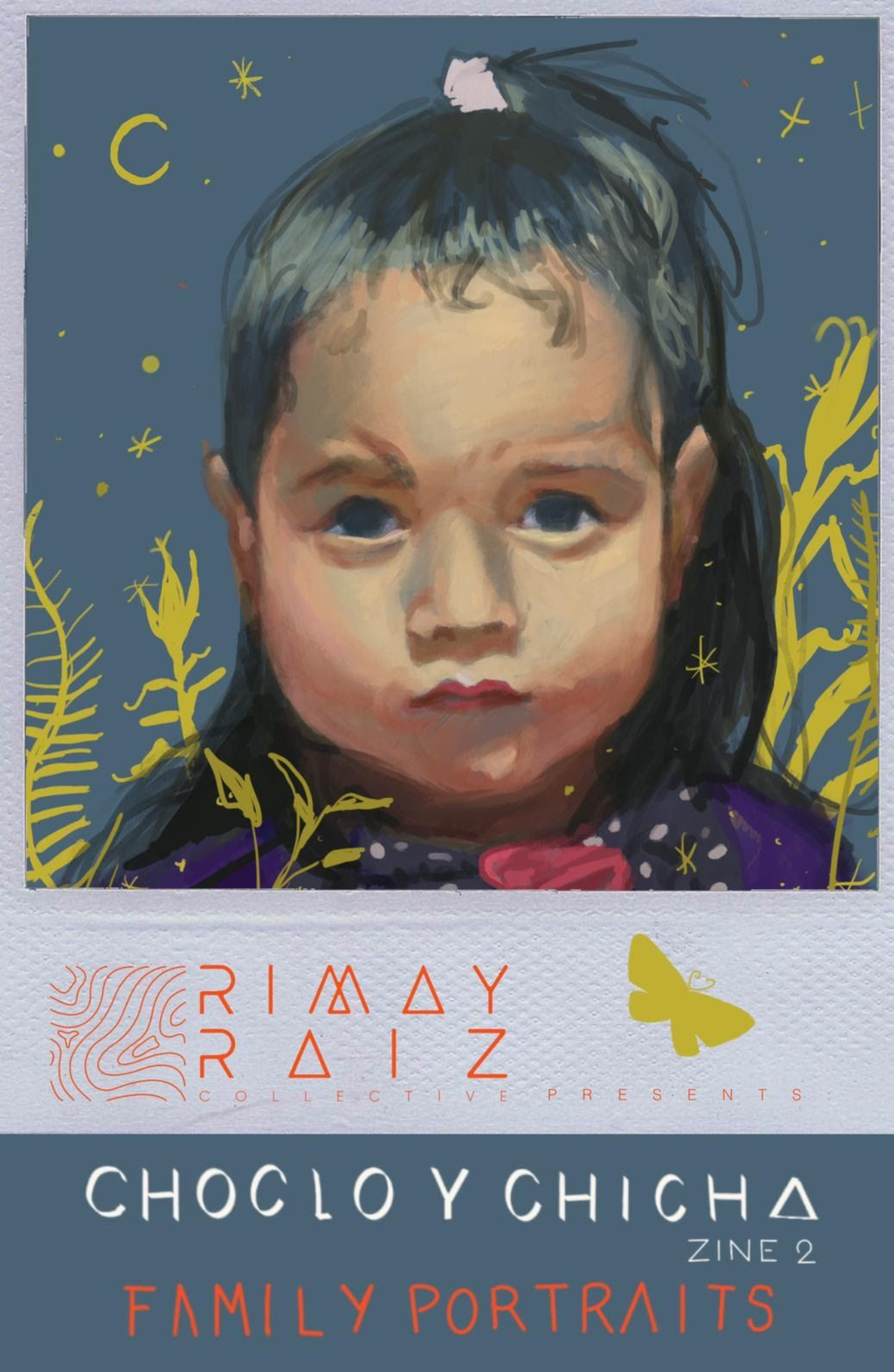Choclo y Chicha: a zine for (and from) the Andean Diaspora
Rima(y) Raíz is a community collective created by and for the Andean/Andinx1 diaspora community of the United States. Launched in 2018 in New York City and New Jersey, our collective now has members in California and Illinois. We are: Jamie San Andres, Claudia Urdanivia, Sandy Enriquez, Ben Kruse-Calla, Layqa Nuna Yawar, and Stephanie Barreto-Lastra, among others that come and go.
Rimay Raiz was created given the erasure and racist portrayals of Andean and Andean-descendant communities among both Latinx and white communities in the United States. Thus, our collective seeks to confront this discrimination and sense of dual exclusion by uplifting and sharing the stories and experiencies of our communities on our own terms, as a way of exposing and resisting the insidious ways that colonialism and imperialism continue to impose their binary and Western epistemologies on our bodies, minds, spirits, and communities, across time and across borders. This resistance is also represented in our name, which connects two sides of our cultural heritage by using the Quechua/Kichwa word ‘rimay’ (to speak) and the Spanish word ‘raíz’ (roots). We are speaking from our roots. Quechua/Kichwa is an ancestral Indigenous language of the Andes and remains one of the most widely spoken Native American languages in the Americas today.
Our goal is to (1) interview three generations across the US-Andean diaspora, from youth, adults, and elders, and include community leaders that have been carving spaces for our community for decades, be that cultural or political (2) archive the oral histories in a public website, (3) share and discuss our stories through multimedia, via a podcast, zine, public space installations, and Raymikuna or virtual parties in this pandemic era, and (4) organize gatherings to celebrate and unite Andean cultural advocacy efforts. Through these initiatives, we aim to reclaim a sense of identity, alter dominant narratives about our communities, preserve experiences and knowledge of our elders, and create a sense of solidarity across borders within the Andean diaspora.
Porque las historias nos llaman, las historias nos limpian y sanan, como el agua y neblina bendita de la montaña.
The last three years we have recorded 14 oral histories and published two zines, some of which are featured here.
Issue #1: Choclo y Chicha, self titled

In March 2020, Rimay Raiz launched Choclo y Chicha, a zine that shares the contributions of the Andinx diaspora through poetry, art, and storytelling. Both choclo and chicha are Quechua words for our ancestral foods of fresh corn and maize drinks, we chose them to reflect our cultural connections and create a space for a uniquely Andean zine. Chicha is also a type of music, Peruvian cumbia, that musicologists and sociologists claim emerged in the Amazon of Peru out of a sentiment of exclusion and otherness by dominant white, criollo elites.
We chose to include zines as part of our core mission because they would allow us to showcase creative, multimedia works from our communities on our own terms, without the need to compromise our vision through mainstream publishing. We also want to acknowledge the diverse ways that our communities express their thoughts, feelings, and experiences, some orally, while others visually or through text. We hope to distribute the zines widely and inspire others in our community to value and share their own stories and experiences through this, and other mediums.
Our first zine featured profound stories such as “Camino hacia la Boca del Lobo-Simiatug” by Jimena Vega, powerful poems such as “Mama Negra, Mama Tierra” by Mónica Carrillo Zegarra, and art by colectivo member Layqa Nuna Yawar, Lenny Correa.
Initially, our zine launch was scheduled to be an intimate event with members of the collective and fellow contributors for the zine, with music, food, and dance. Once the pandemic swept the globe, we made the decision to transition to a virtual event that could replicate this celebration while holding space for our community during this immensely difficult time. You can watch our first two Raymikuna, virtual parties on the RR page on Facebook.
Issue #2: Family Portraits

Our second zine focuses on the intersection of stories and memory through family photos. In this section we feature excerpts from the incredible oral history of Analisa Freitas and the beautiful poem by Marisol Silva, “when I make chicha morada and play your huaynos full blast, and I carry a backpack on the 7 train from Queens to Brooklyn brimming with jars of aji panca, aji amarillos, rocotos, I hold onto Ayni when I can’t remember words in any language, I hold onto Ayni, when I remember that who we are as a people is much too strong to ever be forgotten,” she writes.
Additionally, inspired by our colectivo member Jamie San Andres’ call to action, we are excited to also introduce a new section to our zine entitled Andean Political Reflections, that speaks to the issues and uprisings the Andean region has experienced in the last two years. It is impossible to do cultural work without addressing the political.
We invite you to join our Choclo y Chicha Zine Vol. 2 Raymikuna, virtual zine parties, this Sunday, January 10th from 4-6pm, to hear from contributors of the Family Portraits section, and Sunday February, 28th from 4-6pm, to hear from contributors of the Andean Political Reflection section.
Conclusion
To learn more about our work and stay in touch, please follow us @RimayRaiz on Instagram and Facebook. We will also be launching our website in Summer 2021 which will feature our oral history archive, zines, and other projects. If you would like to get in touch about potential collaborations or have questions, reach out to us at rimayraiz@gmail.com. We would love to hear from you.
Until then, tupananchiskama!
1 The Andean diasporic community includes people with South American heritage from Andean countries such as Bolivia, Ecuador, and Peru. Hence, Rimay Raiz utilizes the term Andean to refer to this region of South America, as opposed to folks that are strictly from the highlands. We remain inclusive of the many nationalities in the Andean region, and recognize that people that may identify with diverse backgrounds, such as that of the coast and the Amazon, Black Indigenous, and mestizo. We welcome all people who identify with our mission and background, whether they are recent immigrants, second generation, or have not connected to their ancestral countries for generations.

